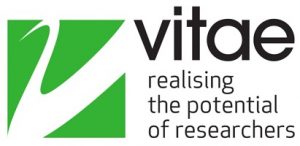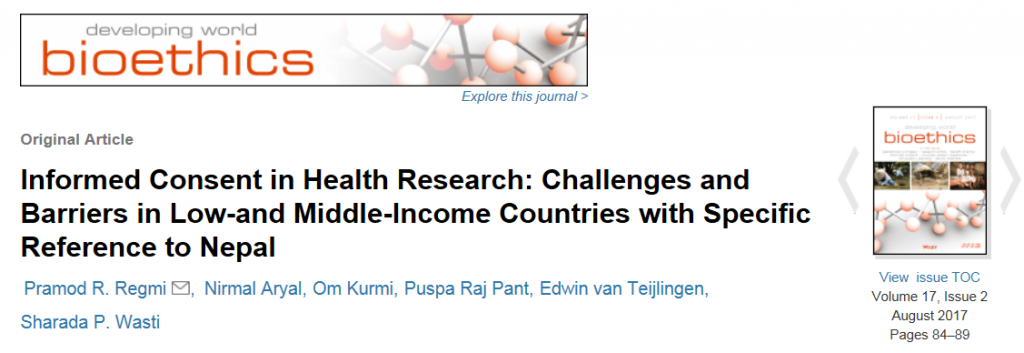New Parliament – On Monday we sent out a special edition policy update to keep you current on the political arrangements as the new government is formed. If you missed it you can read it here. Locally, all the incumbents were re-elected, meaning the whole of Dorset continues to be represented by Conservatives. A breakdown of the local MPs, the profile of their vote share, and current political interest areas is available here. It has now been confirmed that the Queen’s Speech and state opening of Parliament will take place on Wednesday 21 June. Since Monday’s update it has been confirmed that Jo Johnson remains in post as Universities Science Research and Innovation Minister. Anne Milton is the new Apprenticeships and Skills Minister. Locally Tobias Ellwood will move to the Ministry for Defence.
- Student voting preferences: YouGov’s post-election poll states that 64% of full time students voted Labour, 19% for Conservatives, 10% Lib Dems. For graduates Labour got 49% and Conservatives 32%.
- Effect of age: The survey states that young turnout was not as high as the media initially reported – 59% of 20-24 year olds voted. The survey highlights that age is a new dividing line in British politics. For every 10 years older a voter is, the likelihood they will vote Conservative increases.
- Effect of education: The survey reports that education is also an electoral demographic divide with support. In the recent election support for the Conservatives decreased the more educated a voter was, with the reverse for Labour and the Lib Dems. Age is a factor, the young have more qualifications than the old, however YouGov report even accounting for this the Conservatives still have a graduate problem.
Longitudinal Education Outcomes (LEO) data – The full longitudinal education outcomes (LEO) data was released this week. It shows graduate earnings and employment outcomes from 2014/15 taking data from the students graduating 1, 3 and 5 years before 2014/15. The methodological of how the data measured prior attainment has changed and ethnicity identifiers have been removed from the dataset for this release. LEO will be published alongside the Key Information Set on Unistats. Wonkhe ran a live LEO blog on release day (BU got a mention) and have an assortment of articles discussing the LEO findings as well as university rankings for each subject area. Polar data is available so comparison of the class effect on graduate earnings is possible even at a subject level. BU is generally positioned well within the LEO data, which is consistent with our DLHE outcomes data.
Gender pay gaps: Wonkhe reported on the first trial release of LEO data highlighting that the pay gap between women and men is visible from graduation. Wonkhe have explored this gender pay gap through the full LEO dataset released this week. Their new article identifies that, while the gender gap remains, subject area has an affect and where there are lower numbers of men than women on a subject, e.g. nursing, the men outperform the women’s pay by an even greater margin. The article questions whether universities are failing to prepare women to enter the most well-paying graduate jobs, and failing to encourage women’s aspirations on the same par as men. The article also anticipates that when the pay data can be cut by ethnicity that further gender racial divides will been seen. The Guardian also report on the gender pay gap.
Brexit – residency rights for EU citizens wishing to remain in the UK post Brexit are not as black and white as it seems. This report from Migration Watch UK on the EC’s negotiating position explores the shades of grey. There are ongoing rumours of pressure to soften the approach to Brexit but no indication of it – the formal negotiations with the EU start on Monday.
Higher Education and Research Act (HERA) – With Jo Johnson, Justine Greening and Greg Clark’s continuation of their cabinet roles the sector anticipates that both TEF and the HE and Research Act will move forward with more certainty now. UUK have published a briefing on the implementation of the Higher Education and Research Act 2017. UUK remain positive in their approach to the act whilst acknowledging the potential risk to institutional autonomy. The act replaces HEFCE with the OfS, establishes the combined UKRI, and begins to establish the new regulatory system for the sector. UUK call for universities to engage and influence how OfS and UKRI approach their remit and to consider the implications of these split bodies with reference to the relationship between teaching and research within universities.
Regulation: The sector will be regulated through the register of HE providers. The OfS can vary the conditions applied to providers (as the pool of providers will be wider) and requirements relating to access and participation. A technical consultation on registration fees is expected during autumn 2017. Student protection plans will be a requirement of registration, including transparency in enabling provision for student transfers. The OfS will consult on whether there are appropriate bodies that could perform quality assessment and data collection in advance of April 2018 and that would command the confidence of the sector.
Teaching quality: During amendment through parliament conditions of registration relating to quality and standards of teaching meant conditions should relate to sector recognised standards. The detail and ownership the sector will have over the definition of standards is unclear. However, amendments within the Lords ensured that ‘quality’ and ‘standards’ should be properly defined and separate and the independent ability of institutions to set their own standards was protected. The UK-wide standing committee on quality assessment is working to coordinate a shared regulatory baseline and is also reviewing how the quality code, including standards, may need to evolve in the context of the new regulations. HEFCE is also expected to conduct a review of the Annual Provider Review in the autumn.
Degree awarding powers: will be subject to independent quality advice from either the designated quality body or an independent committee, and replicates much of the role of the QAA’s Advisory Committee on degree awarding powers (Section 46). A consultation on how the OfS should exercise its new powers, including ‘probationary’ degree awarding powers, and the removal of degree awarding powers is expected. There are additional conditions to be met before OfS can vary or revoke degree awarding powers or university title, royal charters cannot be revoked in full. There is to be additional ministerial oversight of new providers without a validation track record. Amendment discussions secured tightened regulation around degree awarding powers and university title to protect both students and the sector reputation on sector entry for new providers.
Financial powers: OfS will have the ability to make grants or loans to a HE provider, replicating HEFCE’s powers to provider funding for high cost or strategic/vulnerable subjects. It’s likely any support for providers in financial difficulty would require DfE and Treasury input.
Fee limits & TEF: Fee limit changes require (active) approval by both Commons and Lords, even if the increase is below inflation. An approved access and participation plan is required. There are three levels of fee limits:
- the higher amount which will ordinarily increase by inflation (LINKED TO TEF)
- an intermediate cap LINKED TO TEF (but won’t be implemented before 2020)
- a basic cap (currently set at £9,000)
Until the academic year 2020/21 all providers participating in TEF with approved access plans will be permitted to charge the full inflationary increase up to the higher amount. Before differential fees determined by TEF rating can be implemented an independent review of TEF must take place. The review would need to take place in winter 2018/19 for differential fees to be implemented in 2020/21. The review will cover:
- the process by which ratings are determined under the scheme and the sources of statistical information used in that process
- whether process and statistical information are fit for purpose in determining ratings under the scheme
- the names of the ratings under the scheme and whether those names are appropriate
- the impact of the scheme on the ability of higher education providers to which the scheme applies to carry out their functions (including in particular their functions relating to teaching and research)
- an assessment of whether the scheme is in the public interest
- any other matters that the appointed person considers relevant
Subject level TEF have been delayed by an additional year but will be piloted in 17/18 and 18/19.
UKRI: will operate from April 2018 and is expected to commence by drafting its research and innovation strategy in collaboration with the sector. Research England will have to consult on the terms and conditions attached to the quality-related funding it provides. The government must publish details of the funding provided to UKRI, the terms and conditions attached, and the amount granted to each of the seven councils. This is designed to give public oversight of the process, and to encourage responsible allocation of funding to the different councils. The dual support system will not be undermined. The Act enshrines the Haldane principle within the legislation ‘decisions on individual research proposals are best taken following an evaluation of the quality and likely impact of the proposals (such as a peer review process)’. UKRI should give equal regard to all nations of the UK.
Widening Participation – The Social Mobility Commission have published the Social Mobility Barometer surveying the public’s attitude towards UK social mobility. The Barometer is new and there will be follow up polls each year until 2021. It was run by YouGov. Press coverage: BBC; TES focus on the belief education will be better in the future.
- 48% of the public believe that where you end up in society today is mainly determined by your background and who your parents are; 32% believe everyone has a fair chance to get on regardless of their background.
- 79% believe that there is a large gap between the social classes in Britain today.
- A large majority of people believe that poorer people are held back at nearly every stage of their lives – from childhood, through education and into their careers.
- 71% believe opportunity is dependent on where a person lives (something the government’s intended Industrial Strategy aims to tackle)
- Young people increasingly feel they are on the wrong side of a profound unfairness in British society. The report links this dissatisfaction with the recent election where record numbers of young people voted.
- Personal finances, job security and housing are key issues.
- 76% of the public say poorer people are less likely to attend a top university and 66% say poorer people have less opportunity for a professional career.
Fees and Funding
The House of Commons Library have published a clear briefing paper on HE funding in England. It covers the 2012/13 higher fee increase, removal of maintenance grants and student loan repayment threshold decisions. It also summarises the public spend on HE (within England) and the impact of student loans on the national debt.
Jane Forster Sarah Carter
VC’s Policy Adviser Policy & Public Affairs Officer
 Call for mentors and mentees
Call for mentors and mentees




 Following consultation, the RKEO have developed the new programme of
Following consultation, the RKEO have developed the new programme of  What’s new for 2017/18
What’s new for 2017/18 Highlights
Highlights

 On Wednesday 28th June, the Writing Academy will be hosting a Lunchbyte session with
On Wednesday 28th June, the Writing Academy will be hosting a Lunchbyte session with  We would encourage our BU academics to participate in this upcoming Vitae event and pick up useful tips and information. A
We would encourage our BU academics to participate in this upcoming Vitae event and pick up useful tips and information. A Have a
Have a 
 Live online event on the 8th June 2017
Live online event on the 8th June 2017





 The British Council have announced that the
The British Council have announced that the 











 FHSS academics teaching in Nepal
FHSS academics teaching in Nepal New weight change BU paper
New weight change BU paper One week to go! | The 16th Annual Postgraduate Research Conference
One week to go! | The 16th Annual Postgraduate Research Conference Geography and Environmental Studies academics – would you like to get more involved in preparing our next REF submission?
Geography and Environmental Studies academics – would you like to get more involved in preparing our next REF submission? Congratulations to three former BU staff
Congratulations to three former BU staff MSCA Staff Exchanges 2024 Call – internal deadline
MSCA Staff Exchanges 2024 Call – internal deadline Applications are now open for 2025 ESRC Postdoctoral Fellowships!
Applications are now open for 2025 ESRC Postdoctoral Fellowships! Horizon Europe – ERC CoG and MSCA SE webinars
Horizon Europe – ERC CoG and MSCA SE webinars MaGMap: Mass Grave Mapping
MaGMap: Mass Grave Mapping ERC grants – series of webinars
ERC grants – series of webinars